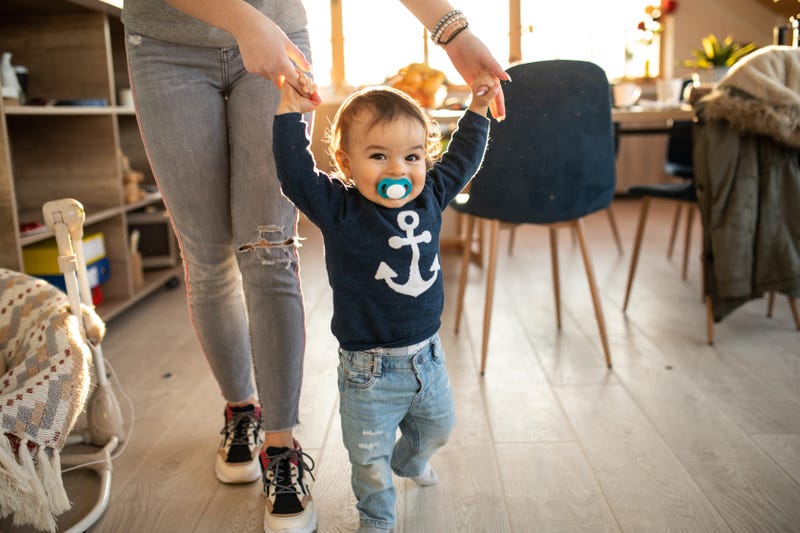
LAWNDALE (KYW Newsradio) — In 2023, it was reported that more than 35,000 children in Pennsylvania are on waiting lists for day care centers. It’s the product of COVID-19 staffing shortages that are still impacting child care services across the country, and it’s forced some parents to find other options.
Caroline Bright is one of those parents. She lives in the Lawndale section of Philadelphia, is a flight attendant and is also pursuing her master's degree in Divinity. Her husband is a JAG officer in the Army National Guard and also works for the City of Philadelphia.
They’re two parents with very hectic schedules, and when their first child was 18 months old, her husband suggested an au pair.
Bright wasn’t buying her husband’s proposal at first.
“And I said, No, no, there's no way we can afford that. It's way too expensive. That is not something that we have no way like our house is too small,” she said.
The notion that au pairs are only for wealthy families is a common misconception. Au pairs are young people between the ages of 18 and 26 from foreign countries that arrive in the U.S. on J-1 visas to stay with American families and care for their children.
The State Department oversees the program that welcomes au pairs to the U.S. It began as a cultural exchange visa program in 1986. Regulations require au pairs to receive a weekly stipend, room and board, and three meals a day. For Bright, that’s a weekly cost of just over $400.
After some persuading, Bright caved, and now she and her husband are on their second au pair, Issy from the U.K., who they welcomed in October 2022.
“I am not exaggerating when I say that Issy is truly the little sister I never had,” said Bright. “And in fact my daughter is very possessive of Issy, and it's really special but we've had so many adventures with Issy.”
She said Issy also allows her to have the flexibility that daycare wouldn’t allow her. Bright’s sentiment was echoed by Natalie Jordan, senior vice president of Cultural Care Au Pair, a designated sponsor of the federal au pair program.
“The au pair program offers an alternative option where families can have accessible care that they can have flexibility to be able to create a schedule that works well for them and for the au pair,” she said.
But Jordan did warn that parents must be willing to share space, culture and traditions with the au pair for it to be successful. Parents that only want someone to take care of their kids should stay away.
“If you're willing to fully embrace a young person coming into your home, and learning some things that might really be brand new to them,” said Jordan, citing the metric system or driving on the other side of the road as examples. “These are small things that we might take for granted, but are differences that need patience and time to work through.”
According to the State Department, there are approximately 29,000 au pairs currently working in the U.S.
